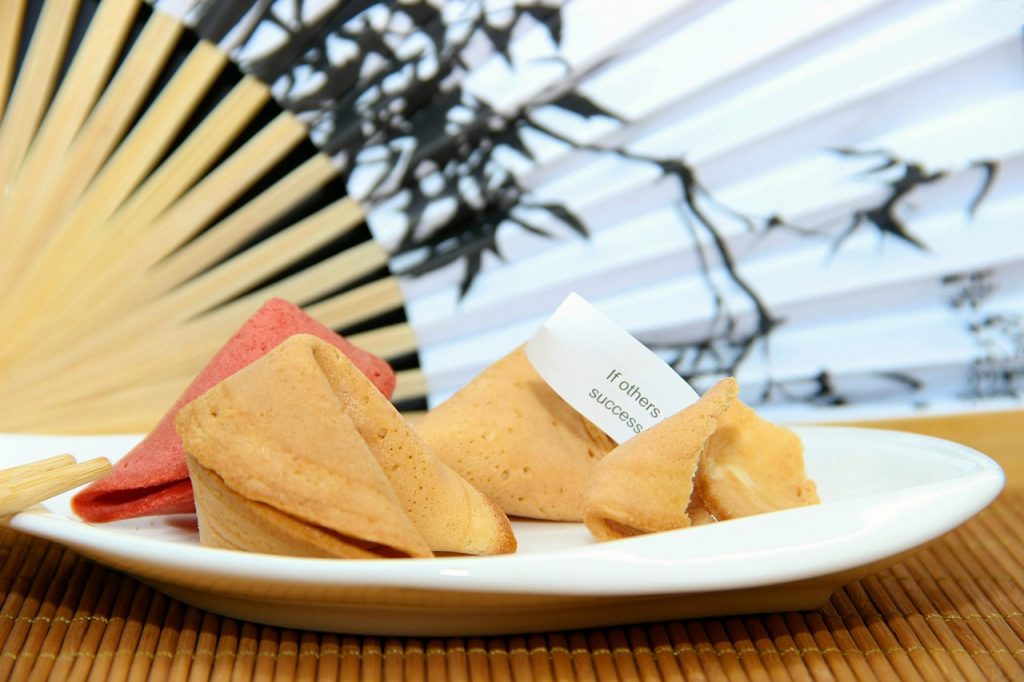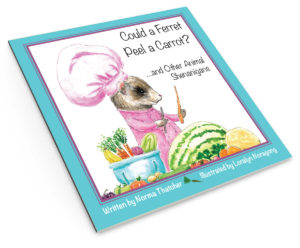
Photo courtesy of guvo59 on Pixabay.com
Writer’s Block. It happens to nearly every writer at some point.
Apparently, even the writer of inspirational sayings for fortune cookies has been afflicted by it. According to an article on cnn.com from August 2, 2016, Donald Lau of Wonton Food Company is now able to write only 2-3 new sayings a month.
What? Most of these sayings contain about a dozen words. And he’s able to write just 2-3 a month? That must be the worst case of writer’s block I’ve ever come across.
Wonton Food Company is the largest manufacturer of fortune cookies in the world, cranking out four million cookies a day from its three American-based factories. Apparently, Mr. Lau was hired as the chief fortune writer because he spoke the best English when Wonton bought the fortune cookie factories over 30 years ago. Now he’s also the CFO. I wonder if, along the way, he wrote himself inspirational messages such as, “Work hard and one day you will oversee a multi-billion dollar company and inspire people with small pieces of paper.”
In the 1990s, Wonton started adding a series of “lucky numbers” and a brief Chinese language lesson (one word) on the fortunes. If you think people don’t pay attention to these little slips of paper, consider this: In 2005 over a hundred people shared a $19 million prize in the Powerball lottery after playing the series of lucky numbers on the back of a fortune. (It’s only happened once. So please don’t go out for Chinese food and then head to the 7-11 to buy a lotto ticket.)
Wait, what? Multiple people got the SAME lucky numbers?! Sorry to burst your bubble, but it’s true. The fortunes and lessons and lucky numbers are used more than once. A lot more. Do the math: cranking out four million cookies a day would make it financially inadvisable to generate unique fortunes, Chinese lessons, and lucky numbers for each individual cookie.
Earlier in 2007, according to a New York Times online article, the marketing coordinator at Wonton hired some freelance writers to come up with some more contemporary messages. It didn’t go over so great.
Cookie eaters were not happy to find messages such as, “Perhaps you’ve been focusing too much on yourself.” Or “Your luck is just not there. Attend to practical matters today.”
There is some disagreement about who invented the fortune cookie. There are some who maintain it has a 14th-century Chinese beginning when the Chinese hid messages in mooncakes to communicate and overcome their rivals, the Mongols.
But most food experts say that the cookie showed up in California in the 1900s.
Immigrant David Jung, owner of Hong Kong Noodle Company, claimed to have invented it in 1918 by hiding inspirational scripture messages in cookies and passing them out to the unemployed.
Japanese landscape architect Makoto Hagiwara is the other contender as the inventor. Hagiwara had created a Japanese Village exhibit for the 1894 California Midwinter International Exposition and later convinced the powers that be to let him make a permanent Japanese tea garden. Hagiwara was the official caretaker of the Japanese Tea Gardens since 1895. His family says that around 1907 he began serving grilled rice wafers with thank-you notes tucked inside.
Since I’ve actually been to the Japanese Tea Gardens inside Golden Gate Park a couple of times (totally enchanting), I’m going with Mr. Hagiwara’s version. Choose for yourself.
~~~~~~~~~
An earlier post of mine from two years ago on the subject of fortune cookies



